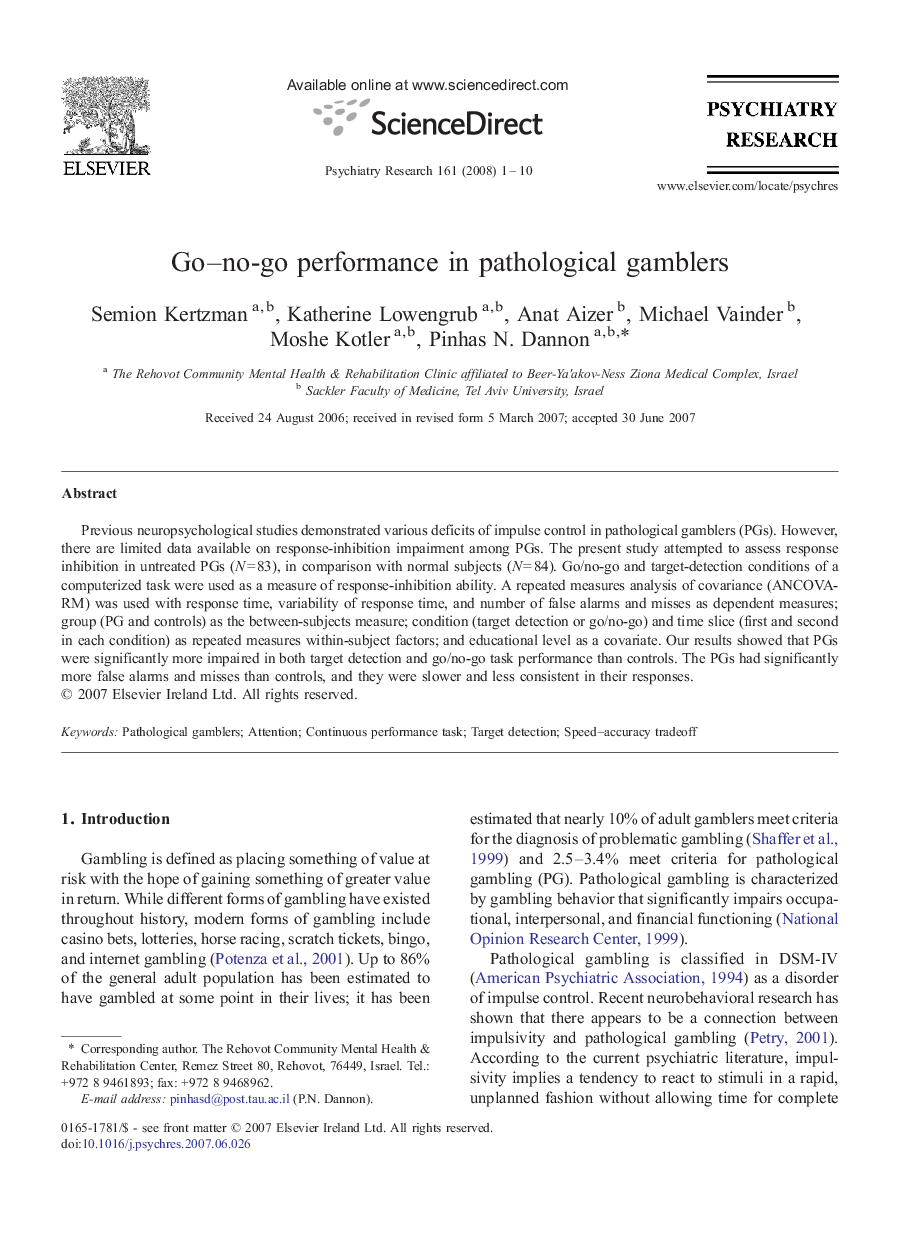| Article ID | Journal | Published Year | Pages | File Type |
|---|---|---|---|---|
| 10304347 | Psychiatry Research | 2008 | 10 Pages |
Abstract
Previous neuropsychological studies demonstrated various deficits of impulse control in pathological gamblers (PGs). However, there are limited data available on response-inhibition impairment among PGs. The present study attempted to assess response inhibition in untreated PGs (NÂ =Â 83), in comparison with normal subjects (NÂ =Â 84). Go/no-go and target-detection conditions of a computerized task were used as a measure of response-inhibition ability. A repeated measures analysis of covariance (ANCOVA-RM) was used with response time, variability of response time, and number of false alarms and misses as dependent measures; group (PG and controls) as the between-subjects measure; condition (target detection or go/no-go) and time slice (first and second in each condition) as repeated measures within-subject factors; and educational level as a covariate. Our results showed that PGs were significantly more impaired in both target detection and go/no-go task performance than controls. The PGs had significantly more false alarms and misses than controls, and they were slower and less consistent in their responses.
Keywords
Related Topics
Life Sciences
Neuroscience
Biological Psychiatry
Authors
Semion Kertzman, Katherine Lowengrub, Anat Aizer, Michael Vainder, Moshe Kotler, Pinhas N. Dannon,
